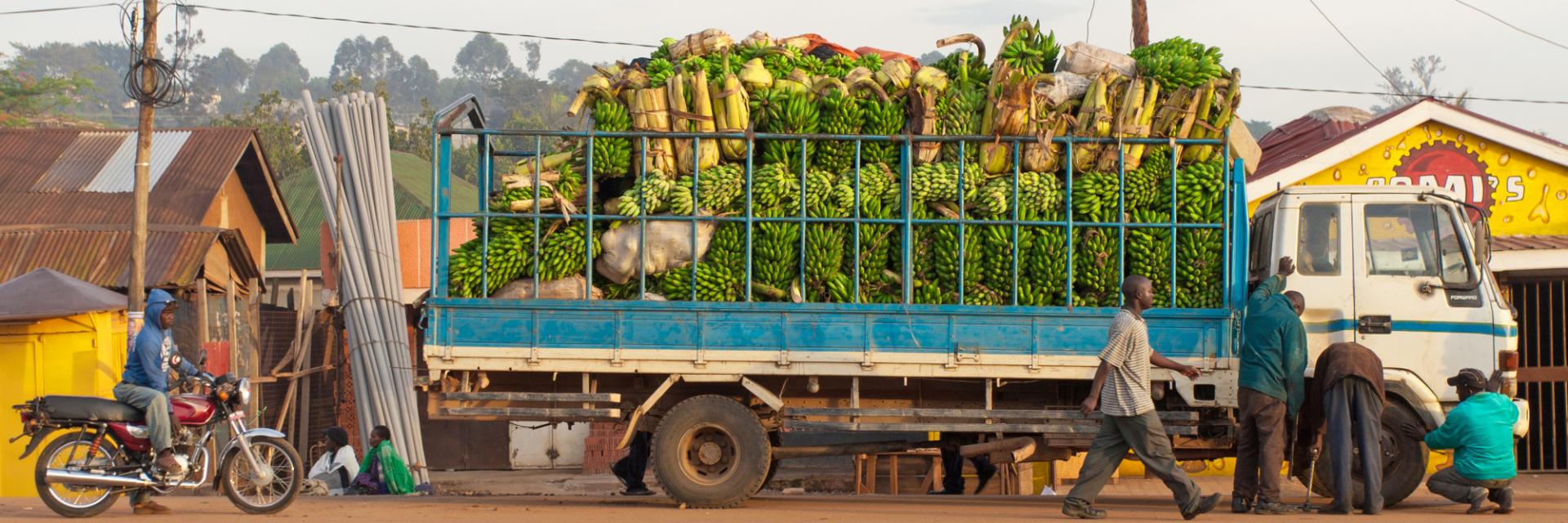Stockholm, Sweden, 29 August 2023 (ECA) - The African Continental Free Trade Area (AfCFTA) is a development ticket that will boost intra-Africa trade and help reduce poverty across the continent when fully implemented, says Stephen Karingi, Director, Regional Integration and Trade Division of the Economic Commission for Africa.
Launched in 2019 the AfCFTA is a free trade area by African countries to create a single continental market with a population of 1.4 billion people and a combined GDP of approximately US$ 3.4 trillion. At its full realization, the AfCFTA with the mandate of eliminating trade barriers, will be the largest free trade area in the world bringing together the 55 countries.
In a lecture at the Nordic African Institute on “Africa’s Trade Potential – An Interactive and Evidence-based “Deep Dive”, Mr. Karingi highlighted that the AfCFTA is a major driver of the
African integration agenda through its promotion of trade in Africa.
While the continent had a low proportion in global trade, Africa’s trade composition was drawing more attention, especially heightened interest in sustainable development, climate change, and production for the future, Mr. Karingi said.
“Africa has historically exported unprocessed and raw commodities with little value added, said Mr. Karingi noted that in 2022, primary commodities represented over 90% of goods exports in 25 African countries.
Africa has recorded a reduction in poverty. In 2010, 40% of African households lived on less than USD $1.90 per day, 13 years later that rate was below 34%. Besides, there has been a rise in incomes, development of skills and Africa’s agency globally was growing.
But despite these positive developments, Africa has faced unique challenges stemming from the Covid-19 pandemic which highlighted its vulnerability due to its almost total dependence on the rest of the world for medical assistance.
Furthermore, the global supply chain constraints of 2021 helped fuel inflation and the current Russia and Ukraine war pushed up the price of staple foods, reduced available quantities, and worsened an existing hunger crisis in parts of the continent.
“The consecutive global crises of recent years have reduced the ability of African governments to focus on their development objectives,” Mr. Karingi noted, citing that across the continent public debt was over USD$1.8 trillion 24 African countries had unsustainable debt levels in 2022, while borrowing costs have risen with spreads for some countries in the double digits. At the same time interest payments now represent over 10% of government revenues in 21 countries, all which affect regional integration.
Africa is well placed to drive sustainable development through the accelerated industrialization and the beneficiation of its critical minerals. In addition, the African continent can tap the carbon credits markets for investment. The digital economy also represents opportunities for industrialization and trade for Africa - a region of the world with the lowest level of connectivity- but investment would be needed in appropriate infrastructure to leverage the power of ‘digital’.
Mr. Karingi stressed that while using trade for development has been a focus for resolving many challenges facing the continent this thinking had produced mixed results. Commodity dependence has been shown to lead to structural instability, fiscal unpredictability, and bad governance, he said.
The focus of the AfCFTA is intra-African trade given that the current composition of African trade is heavily skewed to both export and import from outside the continent. only about 14% of Africa’s USD $660 billion of exports in 2022 went to other African countries and Africa only imported about 14% of its USD $695 billion in imports from within Africa.
ECA estimates predict a 33.5% growth in intra-African trade in 2045 as a result of the Agreement with major trade growth projected in the agrifood sector and in industrial products.
Mr. Karingi cautions that the success of the AfCFTA on it being properly and thoroughly implemented. The right infrastructure and logistics to move products as well as the regulatory environment are essential for efficient trade.
Also critical to the success of the AfCFTA will be the ease of movement of people. The African Union introduced a Free Movement of Persons Protocol in 2018 which has been signed by 32 countries and only four have ratified it.
ECA research cites a lack of knowledge on the benefits of the free movement of people, weak political will to enact change, and conflicting interests as some of the reasons for Africa’s hesitancy in this area. However, the spill-over effects of the free-movement of persons across Africa is large. The ECA estimates informal cross-border trade to be valued at between 7 and 16% of all formal intra-African trade flows.
Issued by:
Communications Section
Economic Commission for Africa
PO Box 3001
Addis Ababa
Ethiopia
Tel: +251 11 551 5826
E-mail: eca-info@un.org

